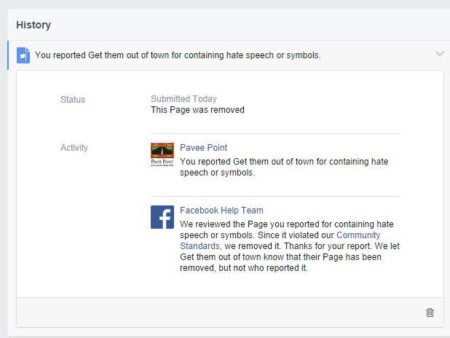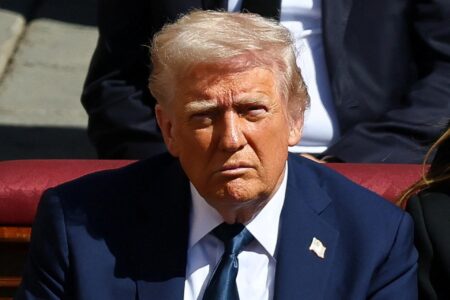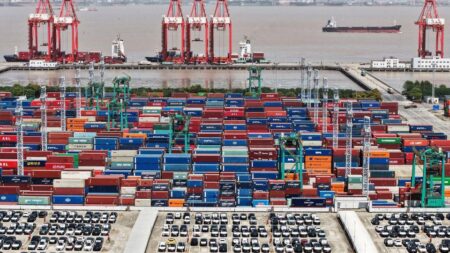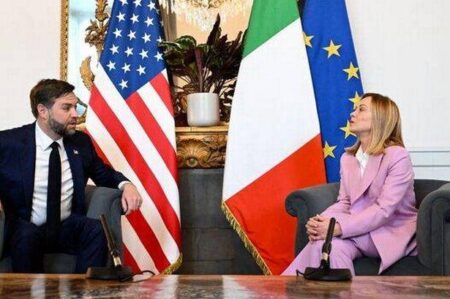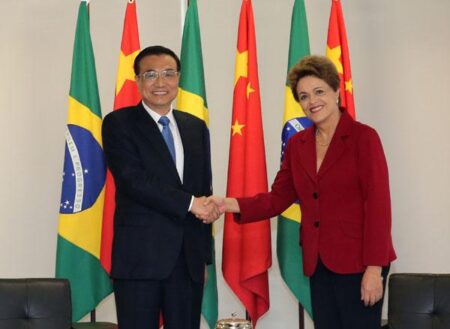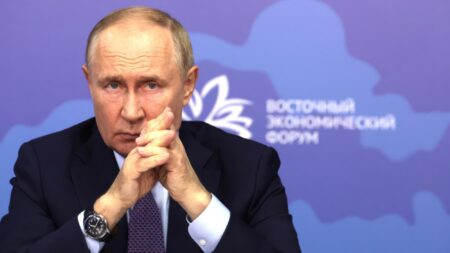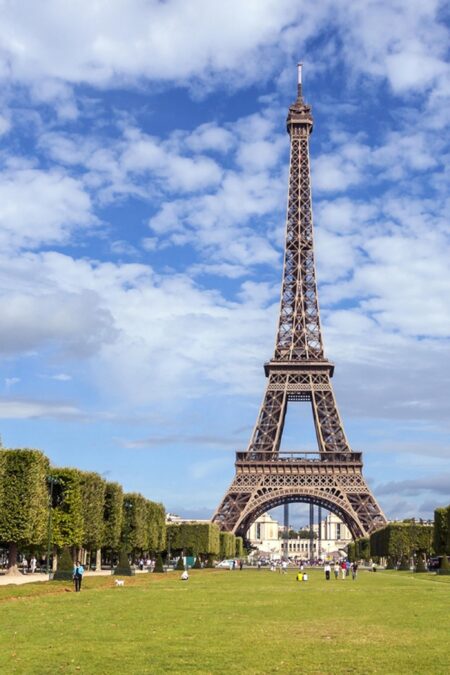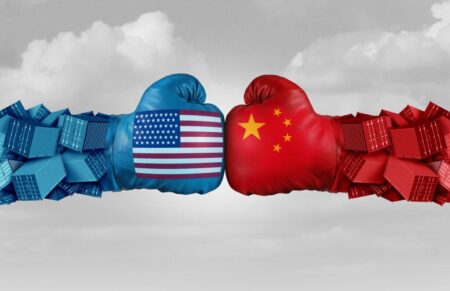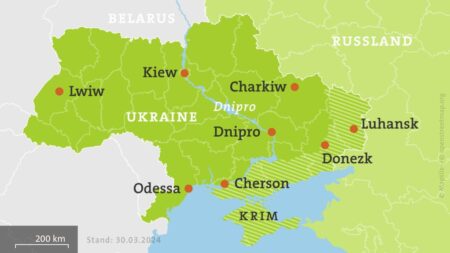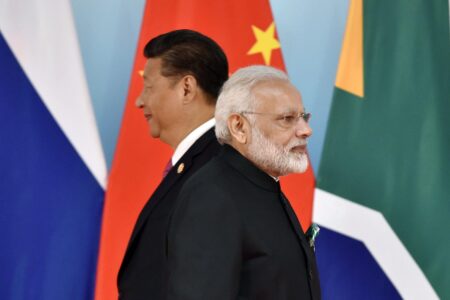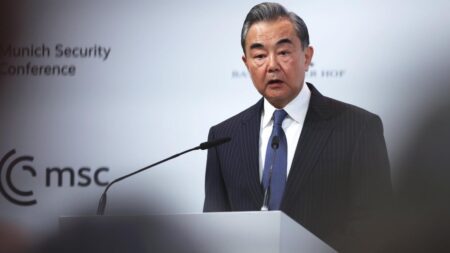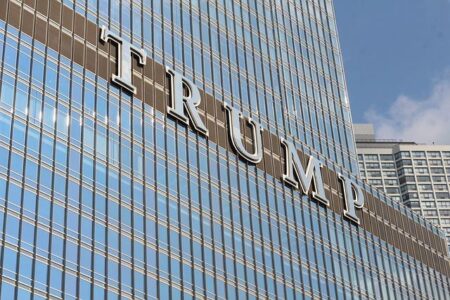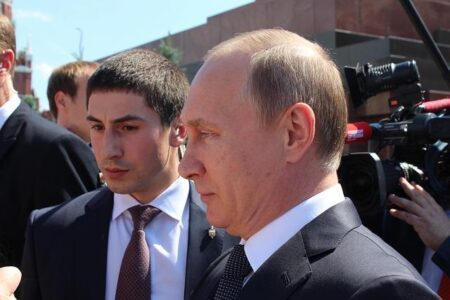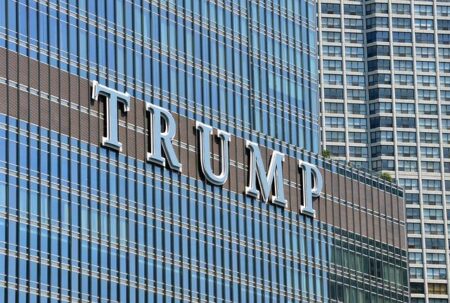Facebook’s enforcement of its hate-speech rules is under the microscope in India’s politically charged atmosphere. As influential leaders harness the platform to rally support, the pressing challenge lies in striking a delicate balance between safeguarding free expression and tackling online hate in a richly diverse society.
Browsing: global politics
Donald Trump touched down in Rome, ready to stand alongside global leaders at the poignant funeral of Pope Francis. This visit not only underscores his enduring influence within the world‚Äôs political elite but also highlights a momentous occasion as heartfelt tributes flow in for the beloved pontiff’s remarkable legacy.
As tensions soar in the Taiwan Strait, China’s military activities around Taiwan’s outlying islands are ramping up dramatically. These bold maneuvers not only jeopardize regional stability but also spark fears of possible military confrontations, underscoring the critical strategic significance of these territories.
Italian Prime Minister Giorgia Meloni is gearing up for an important meeting with former President Donald Trump in Washington. This high-stakes discussion aims to bolster the relationship between their nations and tackle pressing issues that affect both sides. As global dynamics continue to evolve, this gathering represents a pivotal moment in international diplomacy.
In a bold step to enhance their partnership, Chinese President Xi Jinping and Brazilian President Luiz In√°cio Lula da Silva have ramped up their meetings, forging stronger connections as they navigate the shifting landscape of U.S. politics with the potential return of Donald Trump.
In a significant meeting in Moscow, Russian President Vladimir Putin engaged in vital discussions with Qatar’s Emir Tamim bin Hamad Al Thani. Their conversation centered on the pressing crises in Syria and Gaza, highlighting the urgent need for diplomatic solutions. Together, they explored ways to bolster regional stability amidst rising tensions, emphasizing their commitment to fostering peace and cooperation.
France has boldly reaffirmed its backing for former President Donald Trump’s ambitious proposal to bring an end to the ongoing war in Ukraine. This endorsement marks a significant potential shift in diplomatic efforts, highlighting the importance of dialogue and negotiation as key pathways to resolving the conflict.
China has voiced its apprehensions regarding former President Trump’s ambitious $1 trillion Pentagon budget, perceiving it as a potential threat to regional stability. Officials warn that this surge in military spending could heighten tensions across the Asia-Pacific, emphasizing the urgent need for diplomatic solutions
Tensions are rising as the US and China vie for influence over the Panama Canal, a crucial trade route. Panama finds itself in the middle of a diplomatic tug-of-war, with leaders navigating the complex geopolitical landscape amid escalating rhetoric.
China has officially denied claims that its citizens are fighting alongside Russian forces in Ukraine. The statement comes amid rising concerns over foreign involvement in the conflict, as international scrutiny intensifies on China’s stance in the war.
In a startling directive, the German government has urged educators to prepare children for potential conflict, a move that has sparked widespread concern. Meanwhile, a former MI6 chief has issued a grave warning to the UK, highlighting rising tensions in Europe.
In the backdrop of heightened tensions, Indian Prime Minister Narendra Modi seeks to navigate a complex geopolitical landscape to foster improved relations with China. With ongoing border disputes and economic challenges, a thaw could reshape regional stability and cooperation.
In a recent statement, a senior Chinese diplomat addressed U.S. critics of China’s policies, inviting them to visit the country firsthand. He emphasized the importance of direct engagement for a clearer understanding of China’s complexities and advancements.
In light of the growing divisions fueled by former President Trump’s policies, the G7 nations are leveraging the “China card” to foster unity. By addressing shared concerns regarding China’s influence, they aim to reinforce collaboration among member states.
A Russian negotiator described recent talks with U.S. officials regarding Ukraine as “useful,” indicating a potential shift in diplomatic efforts. He emphasized the importance of involving the United Nations to facilitate negotiations and achieve lasting peace.
Russia and Ukraine are set to engage in U.S.-mediated talks in Riyadh, aiming to address ongoing tensions and conflicts in the region. Key diplomatic stakeholders hope this meeting will pave the way for a potential resolution and enhanced dialogue.
In a strategic assessment of the ongoing conflict, Al Jazeera English reports that Vladimir Putin may achieve his objectives in Ukraine amidst shifting dynamics. With international responses evolving, the implications for the region remain critical and far-reaching.
As the U.S. faces a tumultuous political climate under Trump, Canada seeks to strengthen ties with European allies, reaffirming its identity as the “most European non-European country.” This strategic pivot aims to bolster trade and security amidst uncertainty.
In recent comments, Trump highlighted the strategic significance of Ukraine’s Zaporizhzhia Nuclear Power Plant in negotiations with Putin, raising concerns about its safety amid ongoing conflict. The future of the facility remains uncertain as tensions escalate.
In a recent address, PM Pedro S√°nchez emphasized Spain’s responsibility to support nations threatened by Russian aggression. He called for increased solidarity within the European Union, urging member states to bolster diplomatic and military assistance to ensure regional stability.

